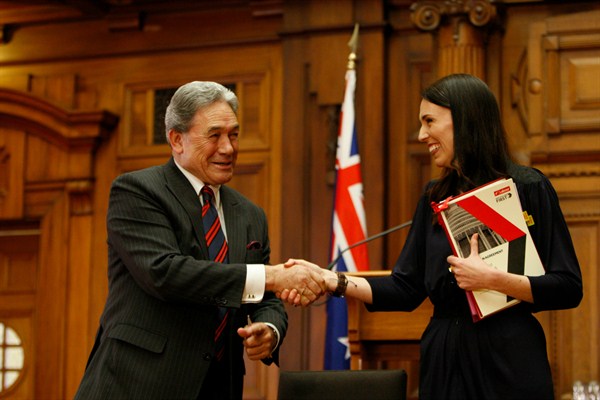After nearly a month of uncertainty following New Zealand’s inconclusive Sept. 23 parliamentary elections, a coalition government was finally formed on Oct. 19 between the Labour party, the Greens and the nationalist New Zealand First party. Though Labour’s recently installed leader Jacinda Ardern will become prime minister, New Zealand First’s “kingmaker” role has led many observers to wonder if the government’s policies will reflect a more populist platform. In an email interview, Stephen Levine, professor of political science and international relations at Victoria University of Wellington, discusses the results of the elections and what the new coalition means for New Zealand’s domestic politics and international relations.
WPR: What explains the outcome in New Zealand’s election last month, and what led to the surge in support for the Labour party?
Stephen Levine: In any democratic election the overriding question is, simply, “What did voters want?” In New Zealand’s elections, the answer is particularly complex. A plurality of voters, 44.4 percent, wanted the status quo: a further three years of government led by the National Party, which has been in power since the November 2008 elections. The country’s second major party, Labour, increased its vote significantly from three years earlier but still finished with 36.9 percent—far behind National. Two small parties, United Future and the Maori Party, lost their parliamentary representation altogether, while another party, ACT, retained its one seat. The remaining two parties, the Greens and New Zealand First, both lost support, the Greens dropping from 14 to eight seats, and New Zealand First falling to nine seats from the 11 seats it won in 2014—with the party’s leader, Winston Peters, losing his seat but able to remain in parliament by virtue of his position on top of the party list rankings.

